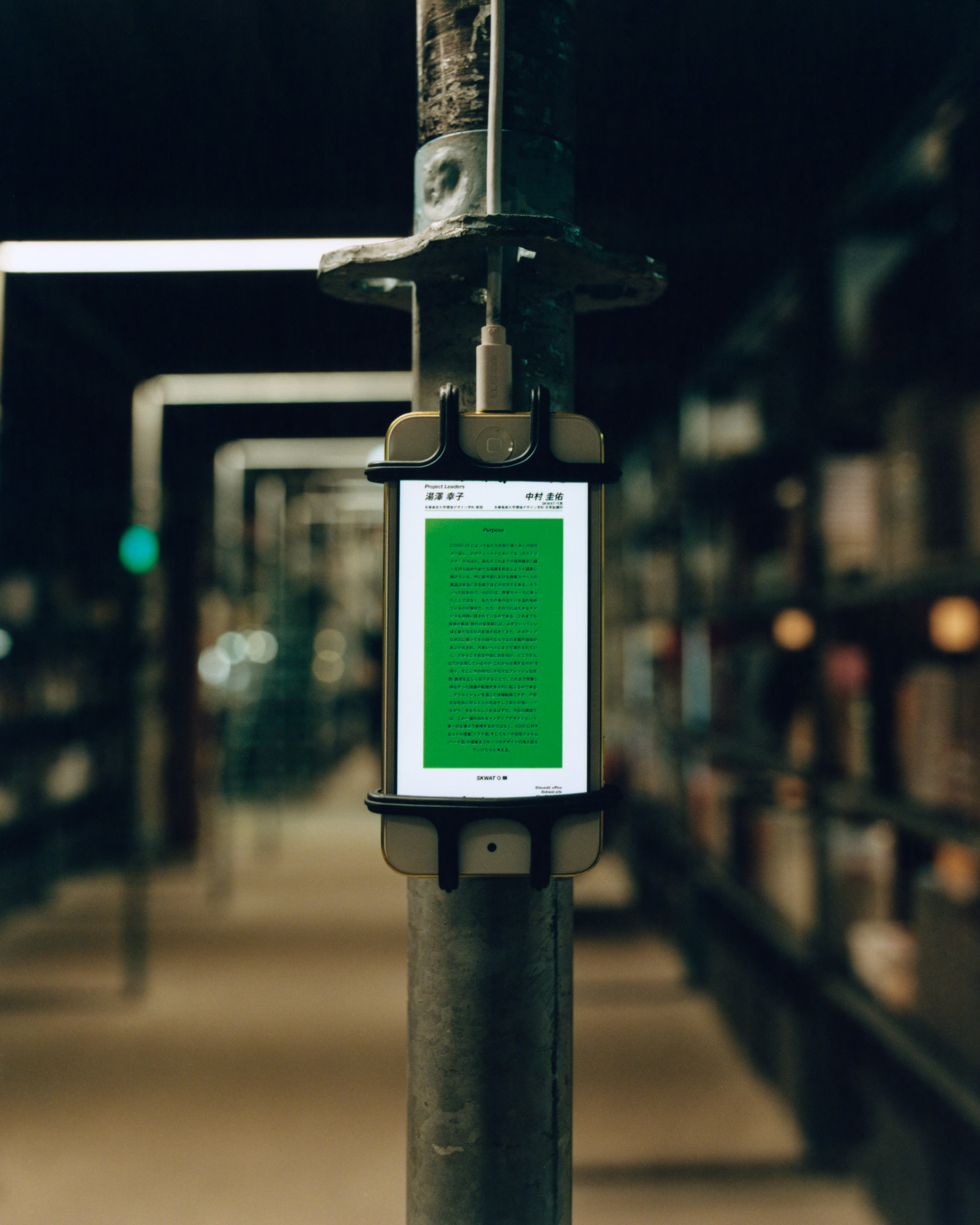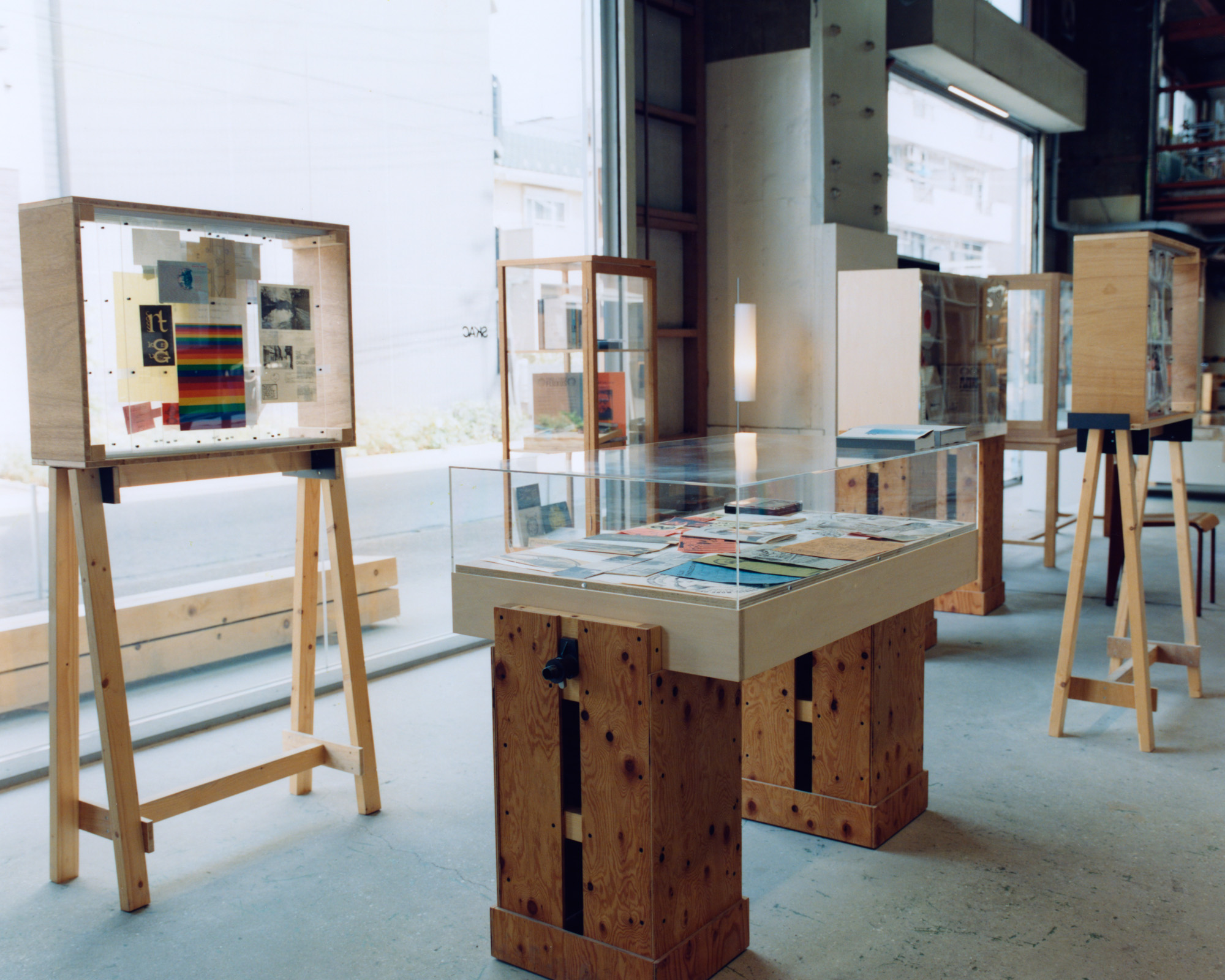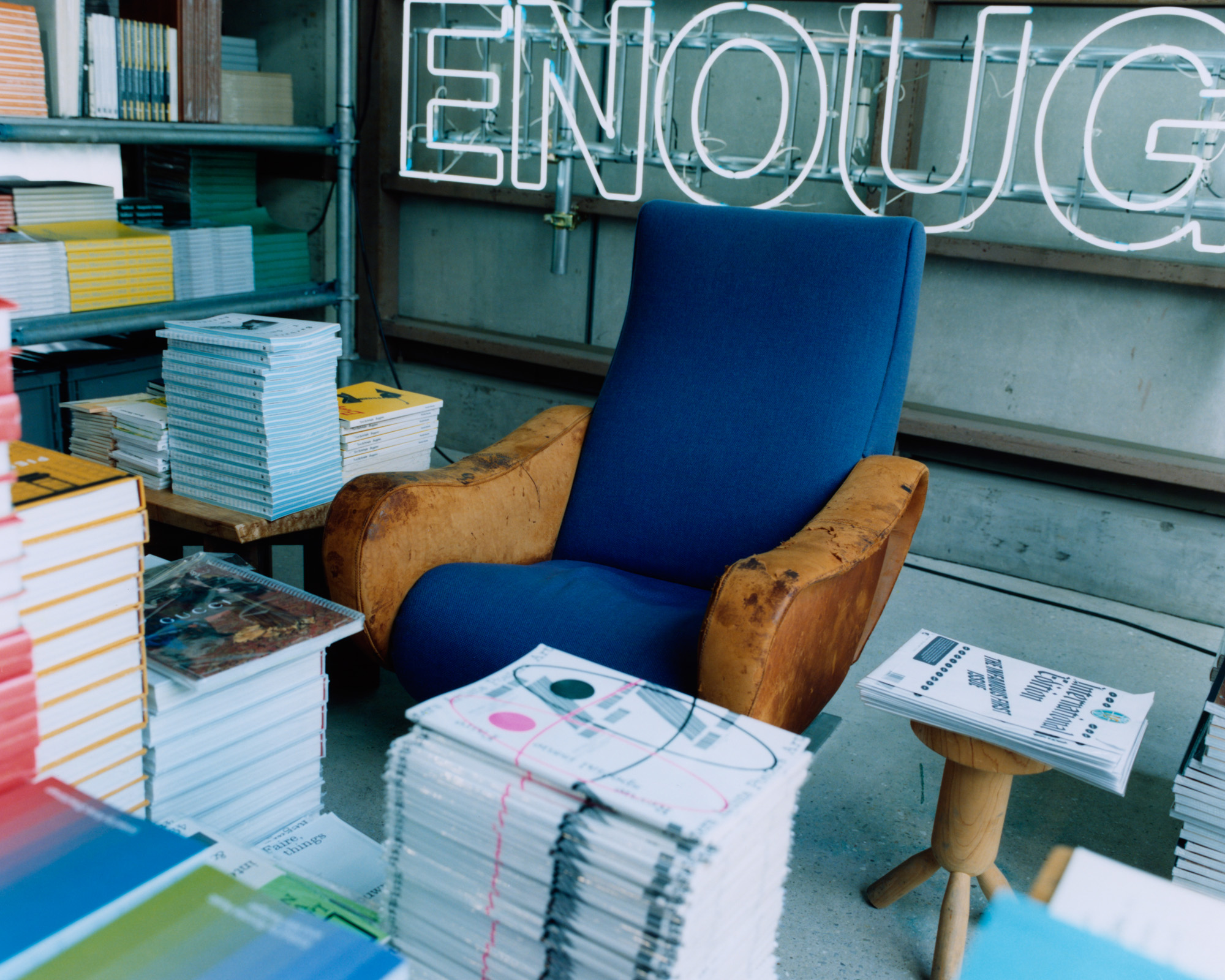Kameari, in Tokyo’s east, is not one of the city’s most well-known districts, but the Skwat Kameari Art Centre (SKAC), led by architect Keisuke Nakamura, is hoping to rewrite this narrative. At its heart is Vinyl Delivery Service (VDS), a record store founded by Rintaro Sekizuka, whose interest in music, sustainability and community is reshaping vinyl culture as a vehicle for local renewal and ecological consciousness.
Track star: Skwat Kameari Art Centre

In a warehouse beneath the railway tracks in the Tokyo neighbourhood of Kameari, cultural project SKAC is home to record store Vinyl Delivery Service
(Image credit: Photography by Den Niwa for Wallpaper*)
When Sekizuka opened VDS in its former central location at Shinjuku Gyoen in 2018, he envisioned a space that went beyond the traditional record store model. ‘I wanted to make something different. I wanted a store that was more free, with more crossing of cultures,’ he says. This ethos was further fuelled by a trip to London in 2019, where he found inspiration in the city’s rich, genre-fluid musical landscape, leading him to open a VDS outpost at Idle Moments. This Bethnal Green listening bar and record shop took inspiration from Japanese jazz kissa (cafés dedicated to jazz music played on high-end audio systems), quickly becoming a vital hub for audiophiles and DJs alike. ‘I got very good feedback from everyone,’ says Sekizuka. ‘They had never seen the records I’d brought and hadn’t connected with Japanese music much because they couldn’t easily get hold of it.’
Last November, Sekizuka took another step closer to realising his ambitions when he moved into SKAC. While central and west Tokyo are dotted with legacy record stores catering to collectors and purists, SKAC’s east location provided the opportunity for something more collaborative, less transactional. ‘Most record shops in central Tokyo are small and packed, with no space to breathe,’ he says. ‘I wanted a place that wasn’t just for record nerds but for everyone.’

SKAC is also home to art book distributor Twelvebooks
(Image credit: Photography by Den Niwa for Wallpaper*)
SKAC is an airy, 3,000 sq m industrial warehouse that has been reimagined as a multidisciplinary space where art, design, music and community intersect. The lack of tangible culture in east Tokyo consciously affected the decision to locate here in order to give the locals something to be proud of and plant the seeds of reinvigoration. ‘The SKAC team aren’t just architects, they design communities,’ says Sekizuka. ‘The idea isn’t just to build something, it’s to change the way people interact with the city.’
The space’s high ceilings, industrial finishes and flexible layouts allow for constant reinvention, while a rotation of artists, designers, students and thinkers cycle through its doors, with different installations and activations every month. Twelvebooks, an art book distributor, sits adjacent to VDS, while other areas host pop-ups, exhibitions and experimental fashion projects. The materiality is equally fluid: the adjoining café’s interiors are repurposed from past installations, a concept spearheaded by SKAC’s Material Matters project.

A sign from a recent student exhibition, which explored the decline of commercial spaces, particularly in urban areas, in a post-Covid world
(Image credit: Photography by Den Niwa for Wallpaper*)
For Sekizuka, vinyl is an ecological statement. ‘The records we have here are mostly secondhand. They were made maybe 40, 50 or 60 years ago. In the context of the environment, this is quite an unnatural thing to do, but human beings create a lot of things we don’t need to make.’ His vision is a closed-loop system, whereby old records are repurposed into new ones. ‘Right now, vinyl waste is barely recyclable. It ends up in landfill or gets downcycled into things like cheap chairs. We need to innovate, either by developing recyclable records or inventing a record we can clean up and press again.’
This ethos extends to urban farming initiatives. ‘We plant seeds in repurposed record shelves, but we’re imagining ways to make that bigger. It’s a utopian idea, but we could have fruit trees on the street and families harvesting food for dinner.’ His plans are still a work in progress, but he sells organic edible plant seeds alongside records as a first step towards his vision.

On show at SKAC in March, the ‘Forest’ collection is a collaboration between Artek and design studio Formafantasma that aims to embrace a more responsible use of wood
(Image credit: Photography by Den Niwa for Wallpaper*)
Every element of the store is linked back to his concept of music as a catalyst for a better future. A key facet of the VDS experience is its functional, built-to-last furniture, which customers are welcome to buy for their own homes. ‘Most record shelves are cheap, mass produced and break easily,’ Sekizuka says. ‘We wanted to create something that could last a hundred years and survive earthquakes.’ Designed by Luka Yasukawa, a Tokyo-based furniture maker, the shelves are crafted exclusively from Japanese hinoki wood, sourced from a small factory in Tokushima. The design process was deeply immersive. ‘We climbed Mount Tsurugi with the artisans and stayed in a mountain hut alongside the trees,’ he says.
Sekizuka’s dedication to local, self-sufficient production extends to clothing. ‘We wanted to create workwear that was functional for both digging for records and farming,’ says Sekizuka. Inspired by Japanese countryside labourers and London’s upcycling community, the project sources deadstock fabric from a textile factory in Shizuoka, giving new life to materials that would otherwise go to waste. ‘Everything is made in Japan, there’s no unnecessary shipping, no mass production. It’s slow fashion, designed to last.’

SKAC also hosts a permanent exhibition section dedicated to the archive of the now-closed Kiyosato Museum of Contemporary Art
(Image credit: Photography by Den Niwa for Wallpaper*)
His ambitions stretch far beyond retail. ‘We’re in ongoing talks to start a vinyl plant. But it has to align with our ethics, either fully recycled or using an alternative material.’
This pocket of east Tokyo may be an unlikely location for a budding utopia, but the SKAC team are planting the seeds that could redefine this community and create larger ripples beyond. With VDS, Sekizuka wants to rethink the way culture, commerce and sustainability intersect. ‘Music is always at the centre,’ says Sekizuka. ‘It’s not just about records, it’s about the way we live.’

(Image credit: Photography by Den Niwa for Wallpaper*)
Skwat Kameari Art Centre is Located at 3 Chome-26-4 Nishikameari, Katsushika City, Tokyo 125-0002, Japan; @skwat.site
A version of this article appears in the June 2025 Travel Issue of Wallpaper*, available in print, on the Wallpaper* app on Apple iOS, and to subscribers of Apple News +. Subscribe to Wallpaper* today.


AloJapan.com